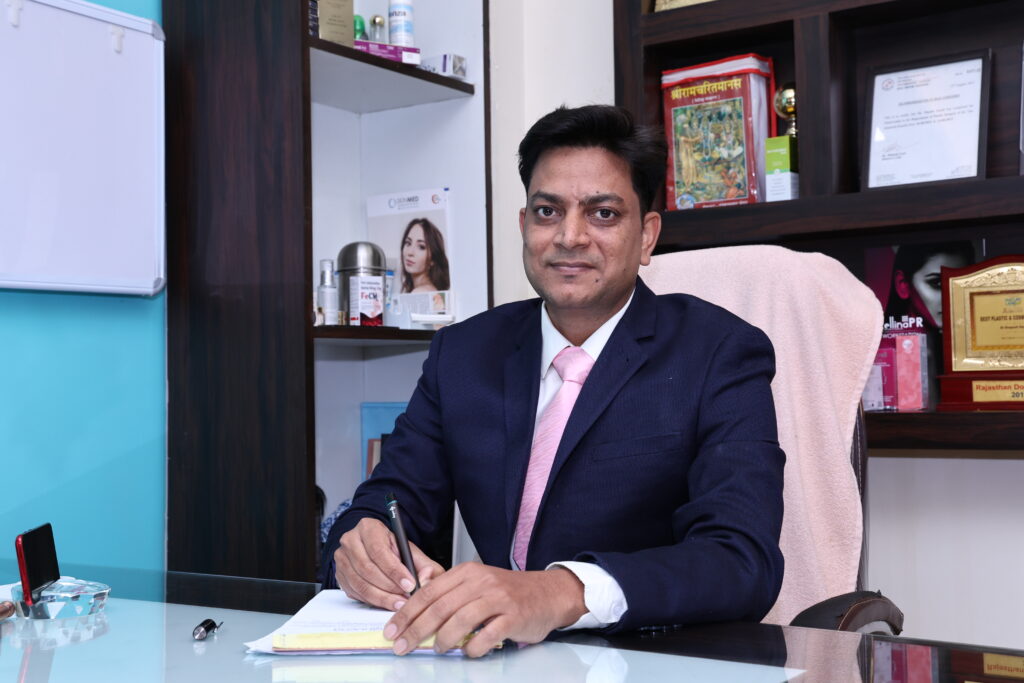Do you have a lot of hair fall when you shower?
When you comb your hair, does a palm-full of hair fall out?
Is your hair on your front-line thinning or disappearing?
Do you find yourself worried and dissatisfied with your hair’s thinning?
Don’t Worry We Have a Solution for you
We at Rejuvena Cosmo care have the expertise doctors for hair transplant and best PRP treatment in Jaipur. Rejuvena Cosmo care is one of the fastest growing hair transplant clinic in Jaipur.
PRP (platelet-rich plasma) therapy for hair loss is a three-step medical procedure that involves drawing, processing, and injecting a person’s blood into the scalp.
PRP injections, according to some doctors, stimulate and sustain natural hair growth by boosting blood flow to the hair follicle and increasing the thickness of the hair shaft. This method is sometimes used in conjunction with other hair loss treatments or medicines.
There isn’t enough evidence to show that PRP is an effective hair loss therapy. PRP treatment, on the other hand, has been around since the 1980s. It’s been used to treat tendons, ligaments, and muscles that have been damaged.
With years of expertise Dr. Deepesh Goyal is one of the renowned cosmetic and plastic surgeon in Jaipur. With Rejuvena Cosmo care you can have the best hair transplant treatments with most affordable price.
The PRP treatment procedure
PRP treatment consists of three steps. PRP therapy usually needs three treatments spaced four to six weeks apart.
Every 4–6 months, maintenance treatments are necessary.
1st step
Your blood is taken and spun in a centrifuge, usually from your arm (a machine that spins rapidly to separate fluids of different densities).
2nd Step
Your blood will have split into three layers after around 10 minutes in the centrifuge:
Plasma devoid of platelets
Plasma with a high concentration of platelets
Cells of the blood
3rd step
The platelet-rich plasma is collected in a syringe and injected into regions of the scalp where hair growth is needed.
What are the risks associated with PRP?
There are risks associated with PRP since it involves injecting a chemical into the skin.
PRP is autologous, which means it is made entirely of components derived from your own body. This lowers the chances of an adverse response from other medicines, such as cortisone or hyaluronic acid, is injected. However, there are dangers associated with the injection, including:
Infection
Damage to the nerves
Injection site discomfort
Harm to the tissues
You should talk to your doctor about these possible dangers and the actions they’ll take to mitigate them.
How long does it take for PRP injections to work?
If you have PRP injected after an injury, your doctor may advise you to rest the injured region. These suggestions, however, are more focused on the injury than on the PRP injections. Following PRP injections, most patients can resume their normal activities.
You may not notice an instant improvement after having PRP injections because they are meant to stimulate healing or development. However, the region may begin to recover faster or develop more hair than you would have expected if you hadn’t gotten PRP injections after a few weeks or months.
What are the advantages?
PRP is used in the following therapeutic areas by doctors:
The development of hair
PRP injections into the scalp may assist to decrease inflammation in the scalp, which can contribute to hair loss.
Tissue regeneration
PRP injections may be used by doctors to aid tissue repair.
Reduction of inflammation
In individuals with OA and rheumatoid arthritis, doctors may use trusted Source PRP to decrease inflammation. As a result of the inflammation, joints might become painful and stiff.
However, the utility of PRP to treat certain types of arthritis remains debatable. Both the ACR and the AF strongly advise against using PRP in the treatment of knee or hip OA.
Takeaway
PRP is a potential therapy for people suffering from tissue damage or hair loss, however, there is still some debate around it.
There is no convincing proof of its efficacy or treatment standardization yet. As a result, certain health organizations and bodies strongly advise against the use of PRP therapies.
Medical insurance usually does not cover PRP injections, which can be costly if several treatments are required.

